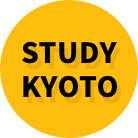My Japanese Job Hunting Experience
2017.02.22
On working overseas
Q: What do you think are some of the differences between shukatsu (job hunting) in Japan, and job hunting in France?
A: There’s not really a set system in France. I think the biggest difference is that in France, you just send in your resume to places you’d like to work. There aren’t really any big company information sessions. There are job fairs and things like that, but they’re a little different than setsumeikai in Japan. Most people just search online and apply on their own a couple months before graduating. There’s a website run by the government, for example, that people can sign up for and be assigned a career agent to help them find jobs.
Resumes are very different in France, too. In France, a resume is only one page long. You want to make it as short as possible, and it’s definitely not handwritten. In Japan a lot of companies want you to send your resume in by mail, and the format is very strict. There aren’t set rules, so most people do internships, or use their contacts and networking to get job interviews—the system is much more free.
On the other hand, in Japan’s job-hunting system, your university major doesn’t have a lot to do with your job. France is much more strict about that: if a history major applies for a job in sales, the HR person is definitely going to ask them why they want to work in sales without any background. I think it’s a really positive thing that your major doesn’t restrict you so much in Japan.
Q: What benefits do you hope to get from working in Japan?
A: First of all, Japanese language and Japanese cultural knowledge, of course. But with the work I’m going to do, I’m looking forward to really working globally. I’ll be entering the sales division of my company as a foreigner who speaks French, Japanese, and English. If I were to work in France with these skills, honestly, I probably wouldn’t have many real chances to use English or Japanese. For that reason alone, I think working in Japan is a great opportunity, because Japanese companies work very globally. Here, I can really use all of the skills I have!
Get ready to test!
Q: What did you find most difficult about looking for a job in Japan?
A: The SPI test. Many people fail it, even if their Japanese skills are great. I have friends who are very fluent, but still couldn’t pass. Of course, what the exam is testing isn’t your Japanese skills, but your reasoning, your math skills. It’s made for native Japanese speakers, so it’s very challenging for them, too.
I took the test for the first time in April, and many times after that, but I failed every time. There are some companies that don’t force non-Japanese applicants to take it, though. I think the companies that don’t force foreigners to take it tend to be the ones that are really serious about hiring them.
The SPI test was the hardest thing for me, but isn’t always required. However, your resume, your reason for wanting to work at a company (shibou douki: lit. “desire to work”), and “personal PR” (jiko PR) are required. Coming from France, where we don’t really have these things, I felt like, “What does ‘personal PR’ even mean?” (laughs) That was hard for me. I didn’t know what to write or say, and I didn’t understand the culture and the thinking behind having such a thing at first. In an interview in France, you may be asked why you want to work in a company, but no one is going to tell you to state your “self-promotion.” It just happens naturally in the conversation, but in Japan it’s something you have to prepare.
Business manners in Japan are too strict, too. People’s actions become overregulated, I think, and it’s not necessary: does it really matter how you hold your hands when you enter a room? I learned the proper way to stand and bow and sit down in an interview, but I don’t think those skills are really useful. In France, it’s enough just to be polite, but that’s Japanese culture!
Q: Was there anything you found easy about job-hunting in Japan?
A: I wouldn’t say anything was easy, to be honest. (laughs) But the least-difficult thing was probably going to multi-company info sessions. There can be up to 50 companies gathered at one event, so it’s a great opportunity to get a lot of information in one day.
The job-hunting system in Japan has very strict rules and schedules, so it’s actually easier to figure out what to do as a student when you’re looking for a job. Everyone goes to the same sorts of events at the same times. That makes the competition intense, too, of course.
Overall, I don’t think there was anything I could fairly call “easy.”
Q: How did you do your research?
A: I knew from the beginning what I wanted to do. I wanted to work in sales in a global company. I wanted to use my communication skills, and my language skills. I knew what I wasn’t interested in either, so it was much easier to look for jobs that would suit me.
I started by looking companies up on RikuNavi and MyNavi, but it took a lot of time to look up each company individually. That’s part of why I liked the multi-company info sessions so much: all the companies are there in one place.
The career agents I used were a good source of information, too. Sometimes I went all the way to Tokyo on a night bus to meet with multiple career agents in Tokyo, but again, I was able to receive a lot of information in one day.
Start early, get ready
Q: How would you sum up your advice for foreign students hoping to work in Japan?
A: I have a list! (laughs)
① Start your job search a year in advance, in April the year before you graduate.
② Study to improve your Japanese. Interviews and info sessions will be held in Japanese. There were some students I saw at “bilingual” career forums who spoke English, but very little Japanese. They thought English alone would be enough, but that just isn’t true, so make sure to study.
③ Take advantage of your university’s career center, and organizations like Hello Work. Use their help when writing your resume, and practice with them in mock interviews. Both of these things will be really important.
④ Make sure you know your “personal PR” story. Most people don’t spend a lot of time thinking about this kind of thing. Try to figure out your unique characteristics so you can paint a picture of who you are for the interviewer.
⑤ Get a nice suit. A dirty or ill-fitting suit will definitely stand out in a bad way at an info session. Make sure you’re making a good impression.
⑥ Sign up for newsletters. Your inbox will fill up with spam emails (laughs), but there’s a lot of good information about info sessions and other things.
⑦ Make sure you attend info sessions. There are a lot of big ones in the summer in particular. Look for events aimed at bilinguals or foreign students.
⑧ Know how to answer when you’re asked why you want to work at a particular company. You won’t go anywhere in an interview without an answer for this. Show them that you really know the company, and that you bothered to research them when you answer.Find their company Facebook page and like their photos if you have to! (laughs) You’ll be more memorable if you share a unique story or something about yourself, too. You want to stick in their minds, so make sure you prepare!
Study Kyoto’s job-hunting site for international students provides students with up-to-date information for “shuukatsu” events in Kyoto!
Check it out! (Website is in Japanese only)
International student employment information portal site 「Beyond Study Kyoto」











